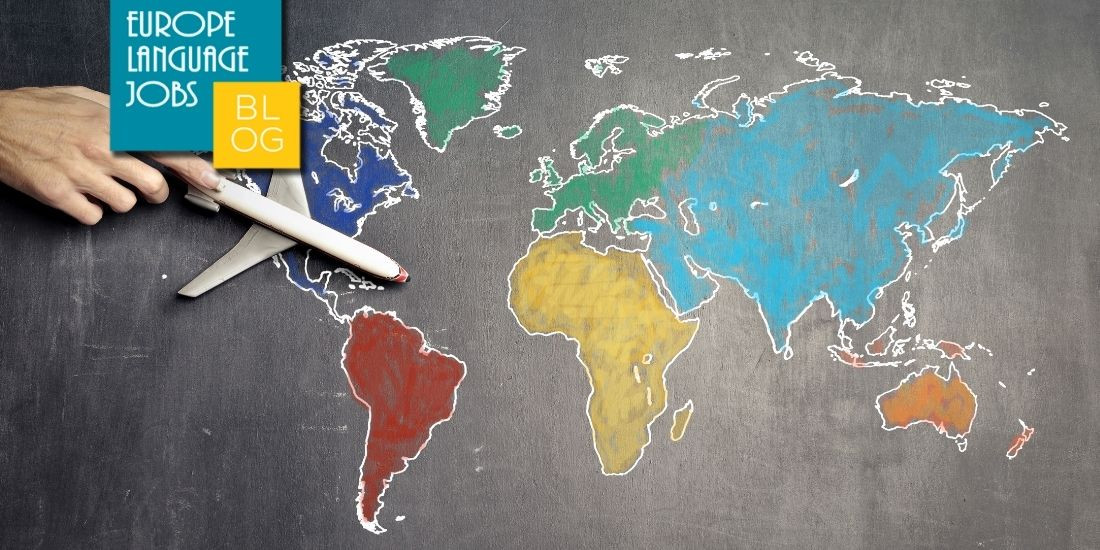Are you applying for a language job in Europe? If so, you may know that, depending on your nationality, a work visa may be required to take up employment on this continent. With this in mind, we’ll talk you through our expat guide on how to obtain your European work visa.
Some topics to keep in mind are: which countries’ citizens require an European work visa, documents you’ll need, steps to apply, and more!
Whether you’re moving to Europe to work for a year or to stay long-term, you’re sure to have a fantastic time!
Each EU Member State Has Its Own Work Visa
The first point to note is that there’s no Europe-wide work visa. Instead, you might have heard about the ETIAS (European Travel Information and Authorization System), the EU’s upcoming visa waiver system, which you could find more information through Byevisa.com.
This was launched in late 2022, and you can use it to visit Europe for: tourism, family/friend visits, business, and for medical reasons.
Similarly, you may have heard about the Schengen Visa. This is the European Union’s common travel visa, which allows you to enter for the same reasons as the ETIAS.
However, to apply for a European work visa, each of the 27 EU members has its own visa policy. So, you’ll have to apply for the particular country you’re planning to work in.
EU Citizens Don’t Require A Work Visa, Other Countries Exempt
That said, it’s worth noting that not all countries’ citizens require a European work visa. Particularly, if you’re a citizen of an EU member state, you can live and work in another member state without obtaining a visa.
Moreover, nationals of the following countries are exempt from needing a European work permit to enter the EU before they find a job: Australia, Canada, Israel, Japan, New Zealand, Switzerland, and the United States of America. Instead, citizens of these nations can apply for their work visa once they’ve arrived.
If you’re a citizen of another nation, such as India, China or Russia, then you must obtain your European work visa at the member state’s embassy in your country before you come to the EU.
Documents to Apply for a Work Visa in the EU
As we say above, each EU member state has its own application process to obtain a work permit. Fortunately, though, the steps for each country are fairly similar. These include:
- Fill in the EU member state’s work visa application form and sign it.
- Make sure that your passport is valid for the length of time you’re staying in the EU.
- Ensure your passport has some blank pages for stamping at customs.
- Obtain some valid passport photos to accompany your application.
- Acquire medical insurance to cover any health costs while you’re in Europe.
- Demonstrate proof of your accommodation in the EU member state.
- Show your signed work contract with your EU employer.
- Show your academic qualifications and any other relevant training.
- Give proof that you can speak the language of where you’re staying in Europe!
Bear in mind that the EU member state you’re applying to work in may have additional requirements to obtain the work visa. So be sure to double check!
Steps to Apply for a European Work Visa
Once you’ve compiled the documents to apply for your work visa, the next thing to do is to apply for your employment permit itself. Here’s how you do it:
-
Research the available work visas of the EU member state you’ll work in.
-
Find out if you need a job before obtaining your visa, as some EU states require.
-
Apply for your work visa with the supporting documents.
-
Attend the visa interview when it’s scheduled and remember to be on time!
-
If all goes well, your visa will be processed and you can enter the EU to work!
Typically, you’ll apply for your work visa at the EU member state’s embassy in your country. That said, some European countries have visa processing centres abroad, so check what’s the nearest one to you.
In addition, a work visa usually takes 8-12 weeks to process. So be sure to apply in time for when you’ll need your employment permit to travel to Europe!
The majority of EU work visas are valid for one year. Fortunately, in many cases, the validity can be extended, if you’re enjoying working in Europe and wish to stay longer!
Of course, all the paperwork involved in moving countries can be frustrating, but we must not forget the benefits of globalization. With this article in mind on how to obtain a European work visa as an expat, you’re now in a much stronger position to land a language job and travel to Europe.
To make yourself an even more attractive candidate before applying for that dream job, you could even search for some job training services. Have a wonderful time wherever you go and whatever you do!






